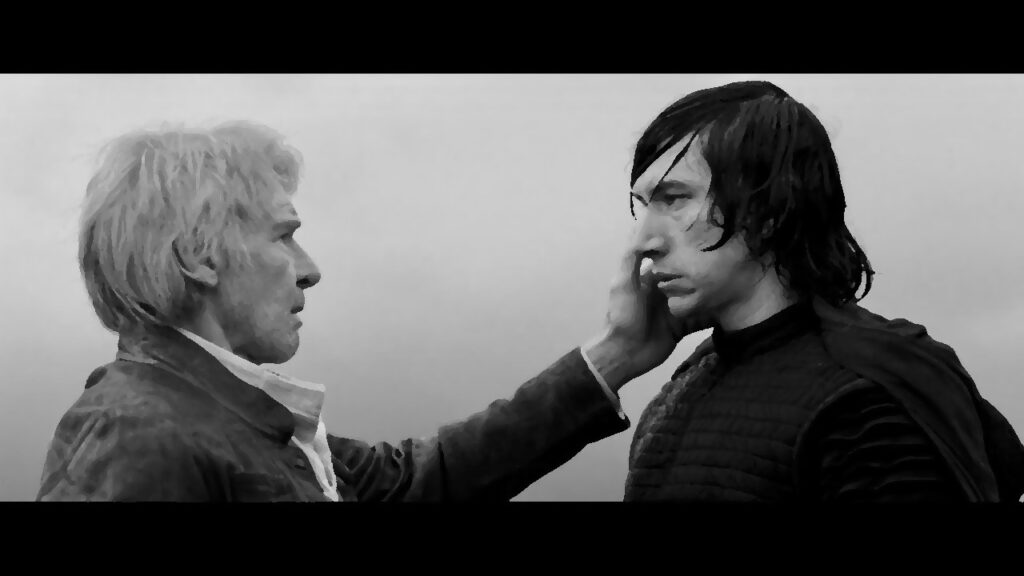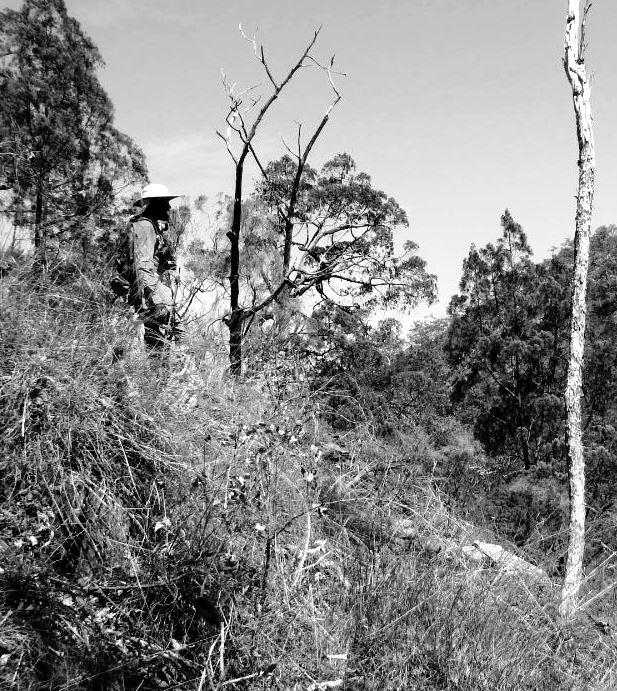
“Dad”
“I want to learn the ways of the Force and become a Jedi like my father” – Luke Skywalker
Carl Jung wrote that the archetype of the Father was in constant struggle with the son. That struggle exists because the son is born to outlive and surpass the Father. The Father places himself between the child man and the mother, rendering the sacred bond. The son in his presence also threatens the Fathers position, he makes him redundant and replaces him. The son is the symbol of the new. The power of the Father reaches its zenith and begins to wane as he ages. The Father is the past. The old is replaced by the new and the circle continues. The story continues to be written, wisdom is passed down and the son eventually becomes the Father. The passing of the mantle from Father to son has continued since the dawn of humans and continues to this day.
In the “The Hero with a thousand faces” by Joseph Campbell, the son on his perilous quest must come to an atonement with the Father. Through his struggles the boy becomes the man that he is meant to be. To complete the journey of becoming fully integrated the man must confront and overcome the Father or reconcile with him. Atonement with the Father is necessary for individuation to occur.
“Why do I get the feeling you’re going to be the death of me?” – Obi-Wan Kenobi
“Don’t say that Master… You’re the closest thing I have to a father… I love you. I don’t want to cause you pain.” – Anakin
Star Wars is a fictional portrayal of the Heroes Journey which follows the same stages of all great myths. The archetype of the Father and the conflict with the son looms large in the mythology both in the canon and in the expanded universe stories. The story is played out between Anakin and Obi-wan Kenobi, Luke Skywalker and Anakin and finally Han Solo and his estranged son, Ben.
Anakin was the divine child in the Star Wars mythology. A child with no Father. Anakin was a product of the Force and he was said to be the chosen one. The coming of the chosen one was prophesized since ancient times and promised a return of balance to the Force. Without a biological Father, Anakin found a surrogate in Ob-wan Kenobi. Over the years that Obi-wan trained Anakin and mentored him on missions the Padawan and then the Jedi felt a need to better his Master and challenge him at every turn. The relationship soured as Anakin fell under the influence of Palpatine and this led to confrontation. Obi-wan Kenobi prevailed against Anakin on Mustafar condemning him to a life of regret and Anakin a life of hell. Decades later on the Death Star, Obi-wan surrendered to his fate and became atoned.
“Now I am the Master” – Darth Vader
Luke Skywalker never knew his father. The identity was only revealed to him after he had already embraced the call to adventure. The second half of the original trilogy was the unfolding of the conflict between Father and son and the eventual redeeming of Anakin by his son on the second Death Star. Love reconciled and reunited them.
“Luke, I am your Father” – Darth Vader
Ben Solo had a troubled life. He was the child of two of the most famous people in the galaxy and watched his mother and father fight and go separate ways. Luke taking Ben as his apprentice also failed and betrayed his nephew. In his confusion and anger he eventually turned to the dark side believing that it bought him closer to his Great Uncle while not understanding that Anakin had been atoned and returned to the light side of the Force. Han Solo sought to reconcile with his son and return him to the mother and in doing so gave up his life. Much later Ben was atoned and reunited with his Father and the Force through self-sacrifice. The prodigal son returned forgiven to the Father with one word he had never uttered before “Dad”.
“Your Son Is Gone. He Was Weak, And Foolish Like His Father.” – Kylo Ren
I walked out of home days after finishing High School and made my way to an Army Recruiters office where I took the first steps in to the life of an adult. I never saw or spoke to my father again. Our relationship had been difficult. I wanted to have a good father-son relationship but I despised him for the harm he had done over the years. I also feared him and could never hope to confront him to resolve the conflict that existed. It was easier to run and never have to deal with it. To this day I still dream of a meeting between us where we can reconcile and atone for the past.
My Father was from a remote place in the Balkans. That region had suffered centuries of war and occupation by foreign powers. It had experienced ethnic and religious conflict and genocide before the oppression of communism. The mountains were soaked with blood and tears. Fleeing that country he sought a better life in the west as a refugee and married, settled in a new country and became alcoholic.
Then there were the years I remember of turmoil, grief, anxiety and fear living in poverty with a man who had no control of his behaviours or emotions. Always the ever present alcoholism that bought utter despair. I moved out as soon as I could and went as far away as I could.
“Remember, a Jedi’s strength flows from the Force. But beware anger, fear, and aggression. The dark side are they. Once you start down the dark path, forever will it dominate your destiny. Luke… do not underestimate the powers of the Emperor or suffer your father’s fate you will.” – Yoda
A decade ago I awoke one night and had the strangest sense that my Father had passed away. I could feel his essence passing from this world to the next. Awake with that I felt nothing but a twinge of regret that whatever I had to say to him would now never be said in person. I also realised that my journey would never be really completed because I was unable to meet my Father again before he passed away.
Not long after I learned through an anonymous phone call that he had indeed passed away as a destitute alcoholic on the other side of the country. I still have no idea how I was tracked down. After the call things got worse. I felt as if I had failed in an important endeavour. Regret of a missed reconciliation turned to bitterness. I felt creeping anxiety of my own mortality and the passing of time. Shadows seemed to crowd in. I became bitter and resentful. This of course fed the final year of my drinking which became uncontrollable. I no longer enjoyed it. The taste of alcohol was revolting and my hangovers grew worse and worse. Soon I could barely support a single drink but it did not matter. I had no choice but to drink.
“One thing remains. Vader. You must confront Vader. Then, only then, a Jedi will you be. And confront him you will.” – Yoda
The figure of my Father loomed large with every drunk. At times I felt as if I was becoming him. I feared to become the man that he was but I looked in the mirror and saw him looking back. The spiral downwards continued and so did the despair. The shadows grew darker and enclosed around me. I felt my insanity beginning to slip. Thoughts of suicide pervaded my drunken thoughts and haunted me during hangovers and short periods of sobriety.
I will never forget seeing my Father when he visited I and my brother in a state orphanage. The state had intervened and removed us from his care when I was 10. My mother had died partly from his ineptitude and was in the grave three years already. He arrived at the orphanage in a dishevelled state and very drunk. I and my brother were kept indoors, away from him. Outside my father stumbled and fell while a few boys poked fun at him and threw stones, one of the boys tried to steal his bottle as the others distracted him. It was pathetic and sad to watch. I was beyond ashamed. My father was a shadow of the man he had once been and was extremely thin and pale. A counsellor from the orphanage called the police and they came and took him away. The authorities placed him in an asylum. The memory burned itself in my mind. Decades later I could see myself becoming that person.
“Dad” – Kylo Ren’s (Ben Solo) last words in the Star Wars saga.
In recovery we seek to make amends where possible. Admitting our faults, making inventory and amends brings us atonement. This often includes seeking to make amends and reconciling with family members. Parents reconcile with children. Sons and daughters reconcile with parents. It is not possible to make amends with the dead in person like Ben Solo did with Han Solo. We know that there is no way we can turn the clock back and we accept that the person is beyond our reach and amends in the physical sense are impossible. Despite that we cannot fall into self-condemnation and remorse. Amends are made daily by living in virtue and practicing principles. You can make peace with the departed through your actions. You can speak to them through prayer if you want. I eventually forgave my Father and asked for his forgiveness in return.
One of the greatest responsibilities and roles is to be a Father. Sadly we see the absence of Fathers emotionally and physically in many families. Despite what many social commentators say, a child needs the presence of the Father. Boys especially need their Father, or at the very least a male role model who can guide and mentor them into life and help them reach their potential. To those in recovery that are estranged from their parents and especially men who are estranged from their sons or fathers, seek to make amends and reconcile. Atone for the past. As hard and painful as that may be do not leave it until it is too late.
Go with the Force, always it will give you strength.







